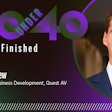“Words matter,” says Pamela Jett, founder and CEO of Jett Communication Inc. Jett is a widely sought-after communication and leadership skills expert and speaker who has worked with hundreds of executives and many Fortune 500 companies. She notes that when planners want to influence key decision-makers, packaging the message using both confidence and competence is critical to cut through daily clutter and noise and shape outcomes that are best for the business. Here, Jett shares how the most effective communicators structure their messaging for others to act upon.
Why is word choice such an important component in how others view the messenger?
One of the things we know about words is that they have two levels of meaning. The words I choose to use as I communicate to someone else not only have content meaning, they also have relationship meaning. They say something about our relationship: how I feel about you, what I think about you, and how I would like for you to think or feel about me. There's a model I share: If we want someone to decide, we've got to be very careful about the words we choose because words drive feelings and feelings drive decisions. It is a validated, scientific fact that every decision we make is based on how we feel.
What’s a specific example of this?
A good example would be the word “just.” If I say to someone, "I just need a moment of your time," the word “just” can trigger a sense that what we're going to talk about isn't very important. It's known as a minimizer. Instead, say, "Do you have time for a brief meeting?" “Brief” says you are going to be succinct and to the point and it's not going to take an inordinate amount of time, and it doesn't have that same minimizing quality as using “just.”
How do effective communicators establish or gain credibility with their audience?
We want to choose fewer words, make more statements, take a position, have a stand and be careful with what we don't use. We don't speak using, "Well, I think…" or "I feel..." We simply say, "This will save us money." We also want to speak the language of the decision-maker. Often, that is by thinking in terms of solutions. You don't ever want to say, "I have an idea." “Idea” is a weak word. Have a plan. Have a proposal. That's the language of a decision-maker.
What are the key characteristics effective communicators and influencers share?
They have three crucial things in common. First, they strive to be relentlessly positive in their communication. The second thing is they are future-focused. They aren't focused on what happened 10 years ago, five years ago or five days ago. When you want to inspire and influence people, you spend more time talking about what's next on the agenda or how you're going to apply what you've learned from the past to the future. The third key component is to be specific and intentional. I don't typically want to say "good job" to somebody. I want to let them know specifically what that good job was and the impact that good job will make on the meeting or event.















